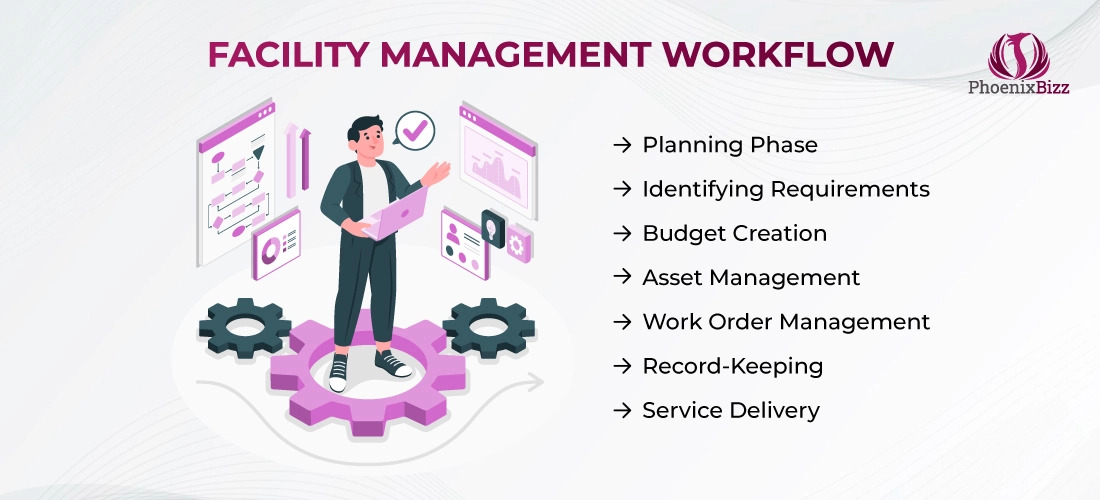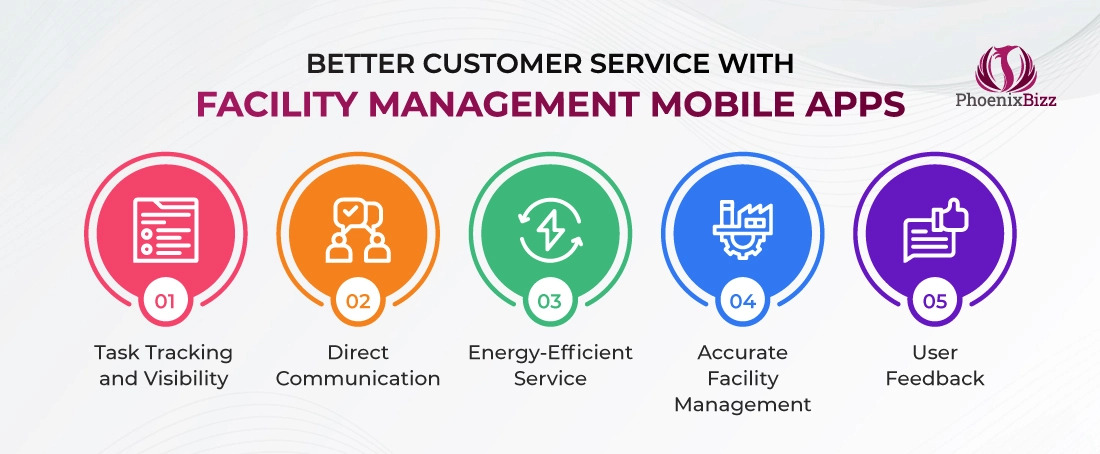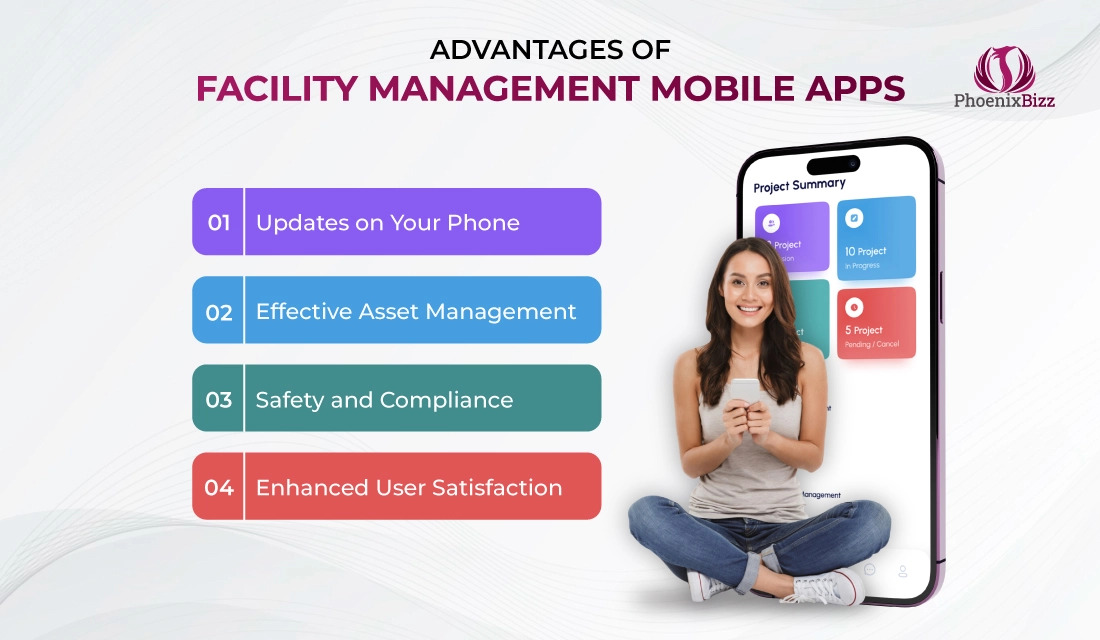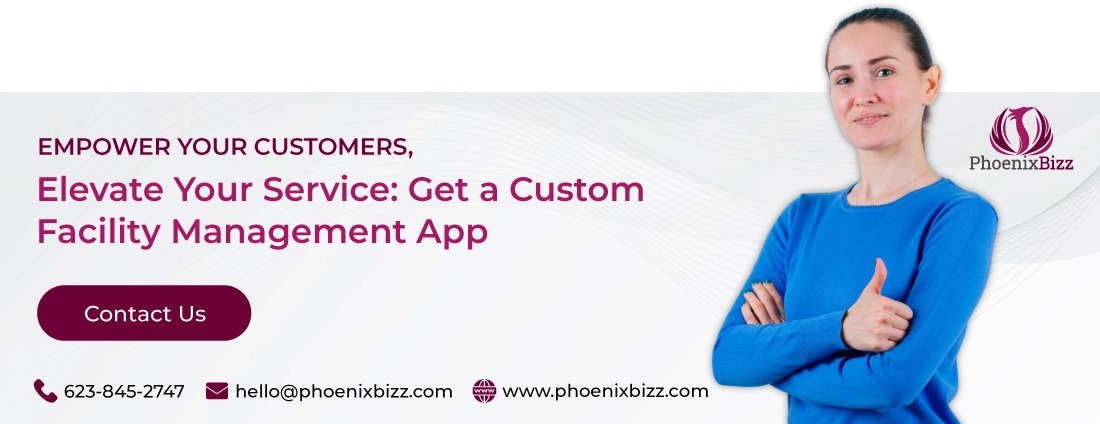March 04, 2024
By: PhoenixBizz Staff Writer
PhoenixBizz is a division of Sofvue, LLC
Printed with permission of Data Titan and Sofvue LLC
Technology has significantly transformed the facility management sector over the past decade, introducing efficiencies, enhanced capabilities, and new ways of managing and operating buildings and facilities. Some key areas where technology has made a substantial impact include:
1. Internet of Things (IoT) Integration
Smart Devices and Sensors: The integration of IoT devices and sensors in buildings has led to smarter facility management. These devices can monitor conditions in real-time, from temperature and humidity to occupancy levels, enabling more responsive and adaptive management of building environments.
Predictive Maintenance: IoT devices help in predicting equipment failures before they occur by monitoring the condition and performance of machinery in real time. This shift from reactive to predictive maintenance saves costs and reduces downtime.
2. Building Information Modeling (BIM)
Enhanced Collaboration: BIM technology has revolutionized facility management by providing a digital representation of the physical and functional characteristics of a facility. This facilitates better collaboration among stakeholders and ensures that everyone is working from a single source of truth.
Lifecycle Management: BIM supports facility managers in managing and maintaining buildings throughout their lifecycle, from planning and design to demolition, by providing detailed information about building components.
3. Automation and Robotics
Cleaning and Maintenance: Robotics has found its way into facility management, particularly in cleaning and maintenance. Robots can perform repetitive tasks, such as cleaning floors or windows, more efficiently and without the need for breaks, enhancing productivity and safety.
Security: Automated drones and robots are also being used for security patrols, offering a cost-effective way to monitor facilities continuously.
4. Energy Management and Sustainability
Smart Energy Systems: Advanced energy management systems powered by AI and machine learning optimize the use of energy within facilities. They can adjust lighting, heating, and air conditioning based on occupancy and weather conditions, significantly reducing energy consumption and costs.
Sustainability Analytics: Technology enables facility managers to collect and analyze data related to water usage, waste management, and energy consumption, helping in making informed decisions that support sustainability goals.
5. Cloud Computing and Mobile Technology
Remote Management: Cloud-based facility management software allows managers to monitor and control building operations from anywhere, enhancing flexibility and responsiveness.
Mobile Applications: Mobile apps enable facility managers and staff to access information and perform tasks on the go, improving communication and efficiency.
6. Artificial Intelligence and Machine Learning
Predictive Analytics: AI and machine learning algorithms analyze data from various sources to predict trends and make informed decisions about facility management, from energy usage optimization to space utilization.
7. Enhanced Security Measures
Advanced Surveillance: Integration of AI with CCTV cameras for facial recognition and unusual activity detection has significantly improved security measures within facilities over the past decade.
Access Control: Biometric systems and mobile-based access controls have enhanced the security and convenience of accessing facilities. Most software development in facility management over the past decade has centered around new technologies that deliver impressive customer and user experience, and the worldwide market for facility management is projected to hit a milestone of 2.03 billion USD by the year 2030. This growth trajectory could see an even steeper incline if companies adopt technologies and tools aimed at improving both customer experiences and the management of facilities. Are you considering a facility management mobile app but are unsure about how to begin the process? If you're nodding in agreement, then you've arrived at the perfect place. Phoenix Bizz designs and develops facility management mobile apps, so read on to learn more.
Must Read: Using Mobile Apps To Improve The Customer Service Experience In Facilities Management
What is the Goal of a Facility Management Mobile App?
A facility management mobile app solution typically comes equipped with features like calendar for scheduling, user panel, admin panel, notifications and reminders, complaint tracker, maintenance announcements, service tickets, to name a few.
Facility management is a critical part of any business since this segment is responsible for a safe, secure, scalable, and comfortable working environment. Here is what a Facility Management mobile app can do for businesses like yours:
✅ Improve risk detection and management.
✅ Increase efficient operations for long-term cost management.
✅ Maintain compliance with regulatory standards.
✅ Deliver impressive and timely service delivery or operations for higher customer and client satisfaction.
To better manage your facility operations, you will need to first secure the right mobile app development company in Phoenix, especially if this is your first effort in building a mobile solution.
Facility Management Workflow
Every service, task, or operation is built on a foundational workflow that encompasses planning, budgeting, organizing, managing assets, testing and gathering feedback, launching, and maintaining post-launch. Here's a breakdown of what this looks like in facility management:

Planning Phase
Facility management aims to ensure that all business operations are executed seamlessly, with minimal disruptions. Initially, stakeholders and teams convene to outline their business objectives, goals, and potential risks. This phase culminates with the project being handed over to the R&D team, who conduct necessary research and devise a comprehensive plan.
Identifying Requirements
A pivotal moment in the development of facility management software involves you and your software development partner pinpointing the current needs of the facility. This stage is crucial for seamlessly integrating vital requirements into the new technology's planning and development. It includes a strategic focus on resource allocation, prioritizing needs based on urgency and importance, ensuring that critical requirements are addressed promptly for a smoother transition or upgrade.
Budget Creation
Embarking on a project without a budget is akin to navigating without a compass. The initial stages lay the groundwork for establishing a practical budget. Teams assess various usage and resource needs to craft a budget plan, considering specific requirements, such as for a healthcare facility, which may include staffing, inventory, and equipment.
Asset Management
This involves identifying and managing asset requirements, including equipment, electrical systems, and transportation. It's also important to consider the maintenance history of existing assets.
Work Order Management
This stage tackles the distribution of work, identifying staff, contractors, and vendors, and assigning tasks based on expertise and profession. It includes monitoring work progress and ensuring tasks are completed efficiently.
Record-Keeping
Maintaining detailed records of past, present, and future orders or services is essential. This encompasses all expenses, maintenance fees, and equipment costs. While traditionally labor-intensive, mobile app systems can streamline this process by automatically storing and managing details for easy future access, allowing staff to focus on other critical aspects of facility management.
Service Delivery
The final step ensures the delivery of services is smooth and precise, leveraging available resources and facilities.
Incorporating a mobile application can significantly streamline the facility management workflow. Equipped with the latest technologies and features, it minimizes manual labor and human error by automating various facility management tasks.
Better Customer Service with Facility Management Mobile Apps
Curious about how a mobile app can enhance customer or client service within the facility management sector? A mobile app serves as a unified platform for monitoring, managing, and executing all tasks. Here's how a facility management mobile app can elevate customer satisfaction for businesses:

1. Task Tracking and Visibility
Assume for a moment that a commercial office building needs elevator maintenance. A facility management mobile app enables employees and stakeholders to report issues and follow the repair progress. This ensures maintenance is conducted promptly, with updates provided on any delays, making task tracking straightforward with the app.
2. Direct Communication
Facility management apps offer a direct line for users to communicate with facility managers. Whether logging complaints, requesting services, or offering feedback, streamlined communication leads to quick resolution of issues, enhancing tenant satisfaction. For example, residents in an apartment complex can easily report problems directly through the app.
3. Energy-Efficient Service
In today's eco-conscious world, both users and facility managers prioritize sustainability. Mobile apps aid in reducing energy waste by identifying inefficiencies and promoting green strategies, appealing to environmental values while also reducing service costs.
4. Accurate Facility Management
Beyond serving clients, mobile apps aid in the overall management of facilities. They track maintenance activities, complaints, and the condition of facilities, providing managers with crucial data for resource allocation, preventive maintenance, and quality service delivery, thus boosting customer and client satisfaction.
5. User Feedback
Improving services heavily relies on customer feedback. Facility management apps can include features for gathering user feedback on service levels, allowing managers to address issues and make necessary adjustments. This demonstrates to users that their input is valued and contributes to timely improvements.
Additional Advantages of Facility Management Mobile Apps
Mobile apps offer unparalleled convenience and efficiency, requiring just a stable internet connection and a smartphone. Here are some primary benefits for businesses utilizing facility management apps:

#1. Updates on Your Phone
Forget booting up a laptop for updates. Facility management apps provide real-time access to information on buildings, equipment, and assets, enabling managers to make informed decisions quickly, directly from their smartphones.
#2. Effective Asset Management
Mobile apps simplify tracking assets and equipment, facilitating timely maintenance, usage tracking, and replacement, thereby extending asset life and minimizing downtime.
#3. Safety and Compliance
Many facility management apps include features for tracking compliance and reporting, crucial in industries with stringent regulations like healthcare and manufacturing, ensuring standards are met and that audits are streamlined.
#4. Enhanced User Satisfaction
These apps streamline the process for employees or users to report issues and track repair statuses, leading to easier complaint resolution and higher customer satisfaction.
Maintaining Facility Management Mobile Apps
✅ Facility management encompasses a variety of tasks aimed at creating a user-friendly experience. Regular and timely maintenance of your facility management mobile app system is crucial for ensuring smooth operations. To guarantee the app's efficiency, consider the following points:
✅ Subscribe for timely and regular maintenance updates.
✅ Receive ‘User’ feedback.
✅ Employ technologies for complete data security.
✅ Training & Support
✅ Update and backup data in a regular manner.
✅ Use cloud-based solutions.
✅ Scalability.
You may also like to read:Streamlining Workflow Processes of an Asphalt Construction Company using Custom, Responsive Mobile and Web Applications
FAQs Regarding Facility Management Mobile Apps
Scope of Facility Management Services
Facility management encompasses a broad range of services essential for the smooth operation of various types of facilities, including office buildings, residential apartments, hospitals, educational institutions, and property management firms. These services are often integrated to ensure the efficient functioning of facilities.
Pricing Model
Our pricing strategy is tailored to meet your specific needs. Recognizing that each client has unique requirements, we determine the cost of development following a thorough discussion to understand your expectations and the resources and features that will be necessary. For detailed information, please contact our support team.
Features Offered
Our expertise enables us to develop highly effective applications equipped with a mix of fundamental and sophisticated features. Key features we offer include service tracking, task management, an administrative panel, a user interface, and a section for logging complaints, among others.
Technology Utilization
As a premier mobile app development firm, we leverage cutting-edge tools and technologies to create superior mobile app solutions for your business. Our toolkit includes advancements in artificial intelligence, the Internet of Things (IoT), and machine learning, enabling us to develop state-of-the-art mobile applications.
Conclusion
Facility management brings together multiple service providers to ensure the safe and efficient functioning of diverse facilities. It focuses on the effective operation of essential systems, as well as maintaining cleanliness, security, and sustainability in built environments. Services in facility management cover a wide array of facilities, including commercial offices, hospitals, and residential properties. Through a comprehensive approach that includes maintenance and the integration of technology, facility managers can create spaces that are both safe and responsive to the needs and expectations of occupants, and in many instances, these objectives are met through the utilization of a facility management mobile app.
PhoenixBizz stands ready to support you with a distinctive and impactful facility management mobile application. Our team of professionals brings extensive experience in software development to the table. Our proficiency is demonstrated through the delivery of meticulously engineered solutions across a diverse range of industries.
Operating as a division of Sofvue, LLC, PhoenixBizz has been at the forefront of delivering unparalleled services for twenty years. We have conceptualized, designed, and executed projects for over 200 companies nationwide, with projects ranging in cost from $25K to over $2MM. Should you be contemplating a project, we invite you to contact us at 623-845-2747. We are committed to transforming your vision into a resounding success.
RE: 11736
Citations
https://www.ifma.org/about/what-is-fm/
https://www.marketsandmarkets.com/Market-Reports/facilities-management-market-1030.html









